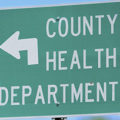Communicable diseases are those that spread by an infectious agent, such as bacteria, viruses, fungi or parasites. Most of these diseases can be passed from person to person so the words “contagious” or “infectious” are often used when talking about communicable diseases.
Some communicable disease spread though the air. Others require direct contact with a contaminated surface, food or beverage, blood or other bodily fluid. In some cases, a bite from an infected animal or insect is also capable of spreading the disease. Some diseases can be transmitted in more than one way.
Communicable diseases remain a major global public health threat worldwide. For example, malaria and HIV/AIDS are mass killers, with the populations in poor countries being hit the hardest. In addition, rapidly developing microbial resistance has led to a new dimension of threat posed by infectious disease. For instance, even though tuberculostatic medicines exist and multi-drug resistant tuberculosis are treatable, millions of people still die of tuberculosis each year.
While in the past, the development of a global pandemic took months or even years, the world is now faced with the possibility of pandemics spreading across the globe within a few days. With the outbreak of SARS in 2002, it became clear that intensive intercontinental travel of humans allows dangerous infections to travel more quickly. Even climate change is impacting the incidence of communicable diseases. With this stark reality in mind, preventive and containment measures for communicable diseases must be a priority.
Public Health Policies and Communicable Diseases
Since the beginning of 2020, the global population has been introduced to an increasing number of important public health policies related to the COVID-19 virus. These policies ― including public health protective measures like social distancing, frequent handwashing, and recommendations for cloth masks in public ― are aimed at slowing the spread of the coronavirus. These policies have quickly become facets of regular daily life for citizens around the globe as we as a society continue to deal with COVID-19.
Minimizing the transmission of infectious diseases is a core function of public health laws and policies. According to WHO, the appropriate exercise of legal powers will vary according to the seriousness of the disease, the means of transmission, and how easily the disease is transmitted. Public health policies play a critical role in global society, helping to improve the public’s overall health, wellness, and quality of life. These policies can have great impacts on a population and contribute to a more successful and productive society.
Law can contribute to the prevention of infectious diseases by improving access to vaccinations and contraceptives, and by facilitating screening, counselling and education of those at risk of infection. Law also has a reactive role: supporting access to treatment, and authorizing public health authorities to limit contact with infectious individuals and to exercise emergency powers in response to disease outbreaks.
Where public health laws authorize interferences with freedom of movement, the right to control one’s health and body, privacy, and property rights, they should balance these private rights with the public health interest in an ethical and transparent way. Public health powers should be based on the principles of public health necessity, reasonable and effective means, proportionality, distributive justice, and transparency.
Immunization is a successful and cost-effective public health strategy that saves millions of lives each year. Governments can support vaccination coverage by ensuring that vaccination is free or affordable, by ensuring that all children are vaccinated (with limited exceptions for medical or religious reasons), and that vaccinations are documented.
Screening individuals to determine if they have been infected with or exposed to an infectious disease is a core public health strategy. Early treatment has important public health benefits; for example, people receiving treatment for tuberculosis and HIV infection are less likely to transmit the infection to others. Routine, voluntary HIV testing benefits both affected individuals and their intimate partners by facilitating early access to prevention, care and treatment services.
Health laws and policies can improve the success of voluntary screening programmes by including counselling requirements, ensuring the confidentiality of test results, and protecting individuals diagnosed with particular diseases from discrimination. Public health laws should protect the confidentiality of a person’s HIV status, authorizing disclosure to third parties only in limited circumstances where a third party is at significant risk of HIV transmission and where other statutory preconditions are met. Governments should carefully consider the appropriate role of criminal law when amending laws to prevent the transmission of infectious and communicable diseases.
For example, criminal penalties for transmission of HIV may create disincentives to individuals to come forward for HIV testing and treatment, or may provide the pretext for harassment and violence against vulnerable groups. Encouraging personal responsibility and self-protection is critical, especially in countries where rates of HIV infection are high. Public health laws should authorize compulsory treatment only in circumstances where an individual is unable or unwilling to consent to treatment, and where their behavior creates a significant risk of transmission of a serious disease. Compulsory treatment orders should restrict individual liberty only to the extent necessary to most effectively reduce risks to public health.
Public health laws may authorize the isolation of individuals and groups who may have been exposed to an infectious disease, as well as the closure of businesses and premises and the confiscation of property. The exercise of these powers must be based on public health considerations, without discrimination on grounds of race, gender, tribal background, or other inappropriate criteria. Public health laws should provide for the fair compensation of those who have suffered economic loss due to a public health order affecting their property or facilities.






